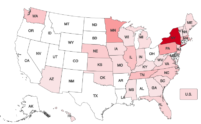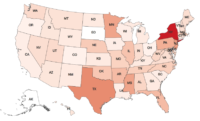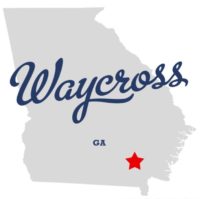 COVID-19 is wreaking havoc on life as we know it. Little has been left untouched, including the mortgage market and foreclosure process.
COVID-19 is wreaking havoc on life as we know it. Little has been left untouched, including the mortgage market and foreclosure process.
At the federal level, the Federal Housing Finance Agency (FHFA), which oversees Fannie Mae, Freddie Mac and the Federal Home Loan Banks, is providing payment forbearance for up to 12 months to borrowers impacted by the crisis. FHFA also directed Fannie and Freddie to suspend foreclosures for at least 60 days. The Department of Housing and Urban Development also suspended evictions and foreclosures until the end of April.
Many state and local governments are also offering relief to borrowers affected by the crisis.
The Kentucky Compromise
 Republican domination of Kentucky’s statehouse has not been a positive development for the Bluegrass State’s public notice laws, which have been under siege for the better part of the last decade. The fight came to a head in 2017, when the GOP assumed majority-party status in both chambers for the first time in the state’s modern history.
Republican domination of Kentucky’s statehouse has not been a positive development for the Bluegrass State’s public notice laws, which have been under siege for the better part of the last decade. The fight came to a head in 2017, when the GOP assumed majority-party status in both chambers for the first time in the state’s modern history.
After failing to move public notice legislation via the normal committee process in 2017, state Senator Chris McDaniel (R-Covington) added language to a budget bill authorizing local governments in counties over 90,000 in population to publish most government notices on their own websites. McDaniel’s amendment also allowed school districts in the state to publish annual financial statements on their websites instead of newspapers. The bill eventually passed both the House and Senate, but former Governor Matt Bevin vetoed it because it raised taxes. His veto was overridden.
Property owners in Cape Coral get a rude surprise
 In an unsigned editorial last month opposing Florida bills S1340 and HB7, the Lehigh Acres Citizen described a recent situation in which local residents were outraged to learn about zoning changes that normally would have been noticed in a newspaper, but weren’t.
In an unsigned editorial last month opposing Florida bills S1340 and HB7, the Lehigh Acres Citizen described a recent situation in which local residents were outraged to learn about zoning changes that normally would have been noticed in a newspaper, but weren’t.
In its opinion piece, the Lee County paper noted that proponents of moving notices to government websites say it would save money.
If government-website notice is cheaper, the Citizen asked, why isn’t it better? It then answered that question by describing what happened last year when the city of Cape Coral was allowed to overhaul its comprehensive plan without publishing a notice.
‘Enemy of the people’ rhetoric takes toll on public notice in statehouses
 Bills have been introduced in at least seven states so far this year that would move most public notice from its traditional home in newspapers to lightly visited government websites. And at least of few of those bills were introduced by legislators who have had fraught relationships with the newspapers that cover them.
Bills have been introduced in at least seven states so far this year that would move most public notice from its traditional home in newspapers to lightly visited government websites. And at least of few of those bills were introduced by legislators who have had fraught relationships with the newspapers that cover them.
The states that appear at present to face the greatest potential peril — Florida, Kentucky, West Virginia and Missouri — have all been down this path before.
Local officials use public notice as tool of vengeance
 After 30 years of serving as the official newspaper in Gardner, Kansas, the local paper is calling foul following the town’s decision to pull its public notices and place them in another publication with no print circulation in Gardner.
After 30 years of serving as the official newspaper in Gardner, Kansas, the local paper is calling foul following the town’s decision to pull its public notices and place them in another publication with no print circulation in Gardner.
“The council members are trying to punish me because they don’t like the way I have been covering the city,” said Rhonda Humble, owner and publisher of The Gardner News. “They are trying to shut me up.”
Connecticut courts move notices to government website
 The week before Christmas, Connecticut’s court system announced that as of Jan. 2, it would moving its notices from newspapers to a bare webpage on the Judicial Branch’s website. “It is expected that this will save a great deal of time and expense, and provide greater accuracy and broader notice than newspaper publication,” the judicial branch said in a statement posted on its website.
The week before Christmas, Connecticut’s court system announced that as of Jan. 2, it would moving its notices from newspapers to a bare webpage on the Judicial Branch’s website. “It is expected that this will save a great deal of time and expense, and provide greater accuracy and broader notice than newspaper publication,” the judicial branch said in a statement posted on its website.
Connecticut courts are not required by state statute to publish notices in print, but until last month they relied on newspapers to satisfy their notice requirements, said Chris VandeHoef, executive director of the Connecticut Daily Newspapers Association.
It was a very good year for public notice
 The newspaper business has had a tough year but not because of public notice.
The newspaper business has had a tough year but not because of public notice.
PNRC has been tracking about 360 distinct public-notice-related bills introduced in 2019, including 80 that passed and were signed into law. Most of these bills added new notice requirements. Moreover, the only one that will have an arguably significant impact on a state’s public notice statute — an eligibility law in Virginia — was supported by that state’s press association.
Voters in Connecticut town eliminate newspaper notice on second try
 Don’t like the outcome of a referendum? No problem. Just put the same issue back on the ballot in the next election, only this time leave out the part that voters objected to the first time.
Don’t like the outcome of a referendum? No problem. Just put the same issue back on the ballot in the next election, only this time leave out the part that voters objected to the first time.
That’s what the Board of Selectmen did last month in the town of Winchester, Connecticut, after voters rejected a 2018 ballot initiative that would have moved the town’s public notices from local newspapers to its website.
Public notice eligibility requirements at issue in California and Georgia locales
 Detailed news coverage of the criteria required for newspapers to qualify to publish notices is rare. But last month we found two stories focused largely on that issue. Together they illustrate the policy implications of the choices legislators make when they enact public notice eligibility requirements.
Detailed news coverage of the criteria required for newspapers to qualify to publish notices is rare. But last month we found two stories focused largely on that issue. Together they illustrate the policy implications of the choices legislators make when they enact public notice eligibility requirements.
The first story comes from southeast Georgia, where The Brunswick News reported on the closing of the Waycross Journal-Herald, a 105-year-old daily newspaper that published its last issue on Monday, Sept. 30. Stories about newspapers closing are not uncommon these days. But focusing, as The News did, on the challenge facing public officials in neighboring counties who need to find an alternative “legal organ” is unusual.
Hoosier State Press Association inaugural public notice summit rallies publishers
 A close call during this year’s legislative session put the fear of god into newspaper industry leaders in Indiana. The Hoosier State Press Association responded by convening a Public Notice Summit, which was held Sept. 13 during the association’s annual conference and advertising awards gala.
A close call during this year’s legislative session put the fear of god into newspaper industry leaders in Indiana. The Hoosier State Press Association responded by convening a Public Notice Summit, which was held Sept. 13 during the association’s annual conference and advertising awards gala.
“We had a big scare in our last session,” said HSPA Executive Director Steve Key, referring to a bill that was introduced in the state House that would have eliminated foreclosure notices in Indiana newspapers. “The bill got a hearing but died in a Senate committee.”
